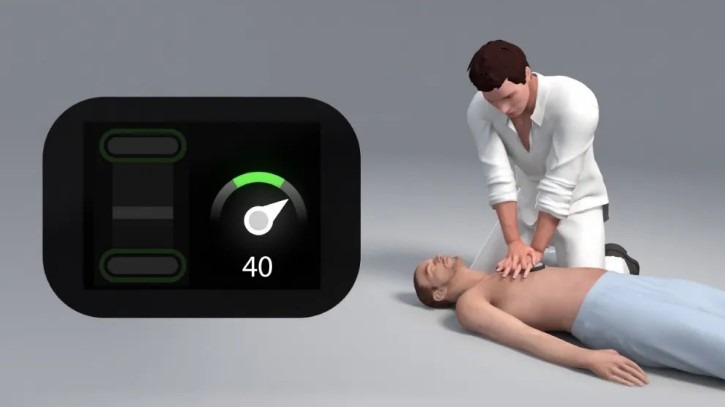Five Tips to Control the Spread of Common Diseases for Nurses

Prevention of infection is one of the top healthcare priorities – on all local, national, and international levels. It aims to reduce the risk of antimicrobial resistance and achieve the UN’s Sustainable Development Goals.
Nurses and doctors are frontline health workers, so they are at significant risk of contracting an infection. The CDC expects that one out of every twenty hospitalized patients will succumb to a disease associated with healthcare.
Fortunately, these infections can be contained. The use of hand hygiene and team-oriented safety programs are two simple and cost-effective strategies that prevent diseases.
For immuno-compromised patients and in specific environments, healthcare-related infections are more likely. Nurses are certainly not immune to all diseases that could lurk around the workplace, which is why infection control is essential for the safety and health of your patients.
In fact, nurses can take several steps to keep germs from spreading. However, since infections are contagious, their spread is as easy as a minor breach of nursing protocol and many immunocompromised patients.
Therefore, understanding and caution are essential when it comes to patient care.
With that said, let’s discuss a series of tips to help support your efforts in this regard today.
Ways to Stop Spread of Infections in Healthcare Settings
1. Collection, labeling, and storage of specimens
Specimens should be collected, labeled, and stored correctly, as their quality will affect any microbiological diagnosis reported and dictate whether or not antibiotics should be prescribed.
In addition, prescriptions of antimicrobial drugs, particularly antibiotics, are influenced directly.
Therefore, nurses must have proper qualifications to understand crucial aspects of facility hygiene and maintenance, infection control, emergency protocols, etc.
As a junior nurse, you might think, what is a Nursing Administration MSN Degree?It’s an advanced degree that equips nurses with extensive knowledge about managing other nurses, handling complex hospital procedures, and learning new skills in medicine.
A patient who receives inappropriate prescriptions due to incorrect specimen handling may be susceptible to infections such as Clostridium difficile and may develop resistance.
2. Ensure that the clinical environment is clean
One of the factors contributing to healthcare-associated infections (HCAIs) is a dirty or contaminated clinical environment. Having your environment contaminated with C. difficile is an example of this.
Although this is a risk in both home and healthcare settings, nurses seldom can manage it outside of clinical settings.
Many microorganisms can be found in patient environments, and most of them are bacteria brought in by patients or staff. Contact with patients or a contaminated environment can also cause the transmission of microorganisms.
Infections can be reduced by maintaining high standards of cleanliness. Several cleaning methods are available for inpatients and residents of care homes, including soap and cloth or microfiber technology.
Furthermore, equipment used on multiple patients is cleaned with pre-prepared detergent or disinfectant wipes.
Specialists can also use additional techniques in hospital settings to decontaminate environments after outbreaks of infections. Hydrogen peroxide vapor is one of them.
3. In-home device management
Almost all healthcare settings require indwelling devices, such as urinary catheters, central vein catheters, and intravenous cannulas. The proper use of these instruments can contribute to positive patient outcomes.
However, their use is associated with risks of infection since they bypass the body’s natural defense mechanisms, including the skin and mucous membranes.
Preventive measures should be in place, just in case something goes wrong. These include insertion as well as ongoing management.
Monitoring devices daily is crucial for assessing patency (that the device is accessible) and detecting any signs of infection.
In addition, good hand hygiene should be mandatory before and after handling the device.
4. Keeping hands clean and healthy
All nursing staff has become accustomed to hand washing regularly since the pandemic. Clean hands can protect you as well as your patients.
During the pandemic, the use of gloves has also increased significantly. Gloves can be an essential part of personal protective equipment (PPE) when used correctly and in the right circumstances.
However, inappropriate and excessive use of gloves can cause damage to the hands as well as infection.
Take simple precautions to reduce the possibility of developing work-related dermatitis and acquiring infections from handling gloves.
Considering how many examination gloves are used each year in health care, these steps can also play a vital role in sustainability.
To protect your hands, it is essential only to use gloves when necessary and remove them when the task is completed; only use gloves for interactions with patients when necessary, and apply emollient cream after hand washing to protect your hands.
5. Engage in communication
Patients and the general public are often concerned about HCAIs, including those caused by MRSA and CLD.
Moreover, they are often concerned about the risks of infection and the precautions required to prevent spread.
Nurses can help ease fears by communicating effectively without compromising confidentiality. Patients, visitors, and staff can obtain information from nurses and ask any questions they may have.
Additionally, you can display signs explaining how to prevent infection if a patient is in isolation, and you can speak with patients about how they can keep themselves and the staff safe.
Final Verdict
Make sure you keep up with these requirements and do not let your busy schedule or hectic day get in the way of properly washing your hands, cleaning tools, and working with the rest of the team to provide a sanitized and safe environment.
It is in everyone’s best interest, particularly employers, to prevent this.
To address issues at an early stage, identifying early warning signs is crucial. Nursing professionals have a vital role in eradicating the spread of infectious diseases.
Nurses can reduce the likelihood of outbreaks and improve safety in hospitals if they understand how pathogens spread, take precautions to prevent transmission, and provide patient education.





